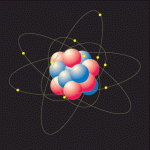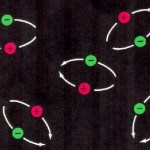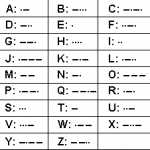photon
As you read this, you are glowing - weakly, faintly, but glowing nonetheless. Chemical reactions within your body, besides liberating energy and producing heat, are also emitting small numbers of photons, elementary particles of light. The glow is strongest in the late afternoon, and around the lower part of your face.
Many living creatures, including fireflies, jellyfish, squid, glow-worms and deep-sea fish, are known for producing their own light often through the help of bacterial accomplices. But virtually all living things emit some degree of light, albeit so weakly that it's very hard…
There are a couple of things I should probably not talk about. One of them is photons. But no matter what you think about photons you will probably agree that this is not a very good description of electromagnetic radiation. (from comos4kids.com)
Structure of Energy:All EM energy waves travel at the speed of light when in a vacuum. No matter what their frequency or wavelength, they always move at the same speed. Some properties of waves, such as diffraction and interference, are also seen in EM radiation. Scientists have figured out that there are tiny particles in these waves. The…
Quantum mechanics is not my area of expertise. Really, I have no area of expertise. However, I think it is time to bring the whole photon thing back up. Yes, I know I was a little harsh before. Maybe I should start over.
First, models. Yes models. I think science is all about models. Scientists build models that attempt to agree with observations. These models could be mathematical, physical, conceptual or numerical (like a computer program). For example, take Newton's Law of gravity (which isn't really a law). It says that the gravitational force between two objects has the…
[In part I of this post](http://scienceblogs.com/dotphysics/2008/11/interaction-between-light-an…), I struggled to show that a particle in an infinite well can only exist at certain energies. If you try to put a particle with more than one energy, the probability oscillates at a frequency (E2 - E1)/h. So, what is next? Well I think I am ready to attack the photon.
According to the ultimate source of truthiness (wikipedia), [the photon is the elementary particle responsible for the electromagnetic interaction](http://en.wikipedia.org/wiki/Photon). In general, the photon is view as the…
One of the fundamental aspects of physics is the study of light and how that interacts with matter. I have been putting off this post - mainly because I am not a quantum mechanic (I am a classical mechanic). There are lots of things that could be done in this post, but I am going to try and keep it limited (and maybe come back to the interesting points later). Also, most of my posts are aimed at the intro-college level or advanced high school level. This will be a little higher. If you are in high school, there is still a lot of stuff for you here.
Let me summarize where I am going to…
This has been all over my inbox since the press release came out yesterday; it's been on slashdot (thanks Brian), it's been at space.com, and there's a mediocre writeup on Universe Today. What's the big news? Black Holes don't destroy information after all!
What is this whole information thing, anyway? Take a look at all the normal stuff in the Universe: photons, protons, neutrons, and electrons, for example. They have lots of different properties each. They move around one another, they get bound and unbound from one another, they exert forces on one another, etc. They're aware of one…
There is a very techincal paper this morning by Martin Bojowald that asks the question, How Quantum Is The Big Bang? Let me break it down for you.
If you took a look at empty space and zoomed in on it, looking at spaces so small that they made a proton look like a basketball, you'd find that space wasn't so empty after all, but was filled with stuff like this:
What are these? They're little pairs of matter particles and anti-matter particles. They spontaneously get created, live for a brief fraction of a second, and then run into each other and disappear. That's what happens on very small…
To follow up on the faster than light post here, let's ask another question:
If you can make a way of transferring information that doesn't involve matter, is that information limited by the speed of light?
First off, let's go over what information is, and then we'll talk about how transferring information without matter is even possible. Information is anything that's organized in a meaningful manner. Take a look at the following three sentences:
This sentence contains some information.
Tihs scnnteee cainntos smoe imnfriatoon.
Not a imfro nimsoe mnoisn ctrnsnet sihto.
Each of the three…


